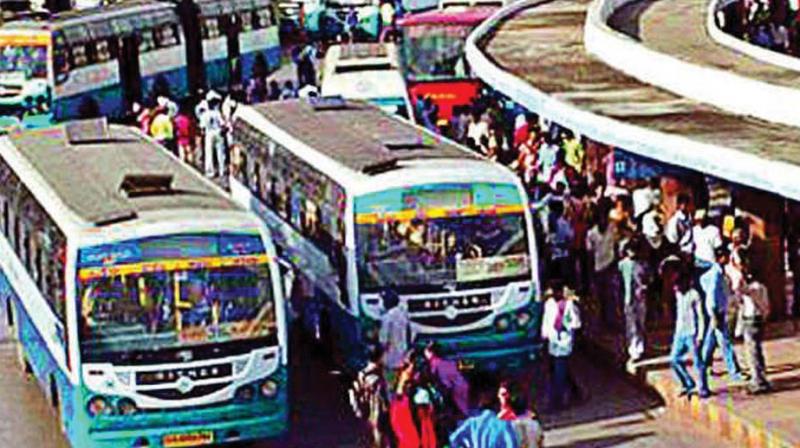On the contrary: Pool me up, scotty
We need to start at the bottom of pyramid and best time to get people to change their mode of transportation is during a major life change.

Bus stigma is the belief that people who ride city buses are a lower class of people than those who own and drive cars, or even better, outsource road rage and parking problems to a chauffeur. Margaret Thatcher, the former high priestess of high living and simple thinking, famously stated that a man still found riding a bus after his mid-twenties could count himself a failure.
But why blame Maggie and why restrict ourselves to buses alone? Thatcher merely vocalized the stigma against public transport that has crossed the Channel to work insidiously on the Indian mindset by fomenting a belief that only those with no other choice, like, “losers”, take a bus. The feeling is by no means confined to the sub-continent: Jacqueline Carr, who works at Lululemon Athletica in Los Angeles posts a hilarious blog, “Snob on a Bus”, which captures the DNA of this prejudice perfectly.
Many moons ago I found myself in the wilds of Tokyo on work. I was staying at a modest hotel which gloried in the name of the Shinagawa Prince and was pleasantly surprised to be greeted in the lobby by an incredibly polite young man, Kagawa, who would be accompanying me to my meeting in downtown Tokyo.
We left the hotel on foot and almost immediately, Kagawa, responding perhaps to some unconscious clue in my body language, gave me a master-class in Japanese diplomacy and the merits of the Metro.
“Sardanasan, my boss told me to pick you up. But now, we go walking to MRT. I like berry much take you in car. But berry problem because too much traffic. In MRT we reach office 25 minutes. In car take maybe two-three hours. In our company, everybody, President, also person make tea, go MRT. Better.”
Nuff said, Kagawasan, if it’s good enough for adherents of Shinto, Samurai and the Emperor, its good enough for me, as long as we can stop for sushi on the way, were my unvoiced thoughts.
When “Red” Ken Livingstone, who served two terms as Mayor of London, first took charge he made three sweeping changes: the congestion tax, Oystercard and articulated buses. Most Tories tore into him for his Bolshevik tendencies, vowing this would be the death of London, private enterprise and the collapse of the banking industry. That last gloomy prediction did come to pass in 2008, but, as those of us who have been exposed to bankers and w******s can vouch, it had nothing to do with congestion tax.
Bengaluru urgently needs a congestion tax and at least part of the proceeds need to be set aside towards proactive measures aimed at increasing public transport usage to a level that would allow our city to achieve a more sustainable future. Maxi-cabs and mini-buses could provide the last-mile connectivity for the disabled and senior citizens, with Fit-bit types opting for hired bicycles.
Still not convinced? Then take a long hard look at the Zika virus known as the Nano. The salient facts are too well known to bear repetition: Ratan Tata’s heart bled when he saw a man on a scooter with his wife and three children and he promptly decided to launch a car for under a lakh.
If Ratan had applied treacly sentiment to the commuter problem perhaps we would have dedicated bus lanes and increased suburban trains with higher peak hour frequency, instead of a huge upsurge of the world’s worst drivers careening around in a vehicle that looks like the lovechild of a Flit-can and an autorickshaw. And apro Cyrus would still have a job…
To reduce the aversion to public transport, we need to start at the bottom of the pyramid and the best time to get people to change their mode of transportation is during a major life change: college is a great time to bring about generational changes in thinking.
Uber’s co-founder Travis Kalanick didn’t start out with grand ambitions to reduce pollution or congestion; his inspiration came from the simple Jitney which charged people 5c for a ride. Kalanick’s confidence in Uber’s future stems from his gut-feel that most millenials today, whether due to crushing student debt, Flipkart addiction or the on-demand Amazon rainforest, don’t give a toss about car ownership. The hope for Bengaluru’s future lies in our nimble-fingered, smartphone GenX who can change our dinosaur-like mindset on mass rapid transport.
— Ajit Saldanha has a finger in the pie, and another on the political pulse. And when he writes, he cooks up a storm.

